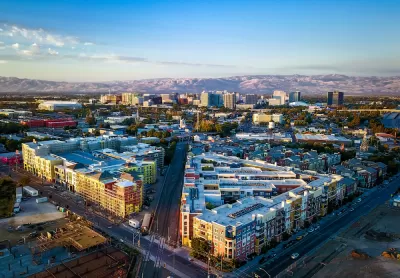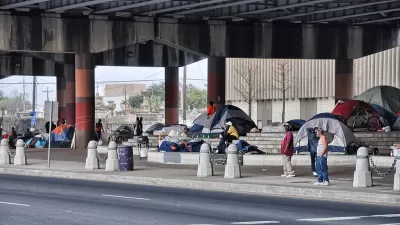Only a fraction of cities interested in using generative artificial intelligence to enhance how they operate have made moves to adopt to the technology. What are the obstacles to adoption and what can be learned from local governments who’ve already taken the leap?

Sara Al Hudaithy and Anu Devi for the World Economic Forum have pulled together an excellent article on the use of generative artificial intelligence by local governments worldwide, which they describe as being in the “exploratory phase” as many formulate policies to regulate its use. They cite a 2023 Bloomberg Philanthropies survey of 100 mayors and city staff worldwide in which 69 percent said they were either currently exploring or testing GenAI capabilities. “These city officials are particularly interested in understanding how GenAI can help enhance citizen engagement, advance data-driven policy-making, optimize services and resource allocation, and streamline administrative processes and communication. In addition, they are interested in determining how GenAI can enhance city services and efficiency, especially in areas such as traffic and transportation, infrastructure, public safety, environmental issues, education and administrative tasks.” However, only 2 percent have actively adopted the technology.
The rest of the article explores the activities of that 2 percent, including links to AI policies and guidelines of cities like Seattle, San Jose, Boston, New York, Amsterdam, Helsinki, as well as the potential of GenAI once cities exploration and adoption grows beyond its current “infancy” stage and cities are able to identify where it can make the most difference and overcome various obstacles. “The potential of combining unbiased and large datasets with machine learning and other technological capabilities can bring significant benefits to society, governments and businesses. However, this potential can only be realized when risks and unintended consequences, both short- and long-term, are accounted for and addressed through governance frameworks designed to minimize harm. Additionally, finding cost-effective and practical use cases and learnings for cities is essential for successful adoption,” Al Hudaithy and Devi write.
FULL STORY: Cities are sizing up the generative AI skyline. But first, they have to establish the ground rules

Trump Administration Could Effectively End Housing Voucher Program
Federal officials are eyeing major cuts to the Section 8 program that helps millions of low-income households pay rent.

Planetizen Federal Action Tracker
A weekly monitor of how Trump’s orders and actions are impacting planners and planning in America.

Ken Jennings Launches Transit Web Series
The Jeopardy champ wants you to ride public transit.

Washington Legislature Passes Rent Increase Cap
A bill that caps rent increases at 7 percent plus inflation is headed to the governor’s desk.

From Planning to Action: How LA County Is Rethinking Climate Resilience
Chief Sustainability Officer Rita Kampalath outlines the County’s shift from planning to implementation in its climate resilience efforts, emphasizing cross-departmental coordination, updated recovery strategies, and the need for flexible funding.

New Mexico Aging Department Commits to Helping Seniors Age ‘In Place’ and ‘Autonomously’ in New Draft Plan
As New Mexico’s population of seniors continues to grow, the state’s aging department is proposing expanded initiatives to help seniors maintain their autonomy while also supporting family caregivers.
Urban Design for Planners 1: Software Tools
This six-course series explores essential urban design concepts using open source software and equips planners with the tools they need to participate fully in the urban design process.
Planning for Universal Design
Learn the tools for implementing Universal Design in planning regulations.
Heyer Gruel & Associates PA
Ada County Highway District
Institute for Housing and Urban Development Studies (IHS)
City of Grandview
Harvard GSD Executive Education
Toledo-Lucas County Plan Commissions
Salt Lake City
NYU Wagner Graduate School of Public Service





























